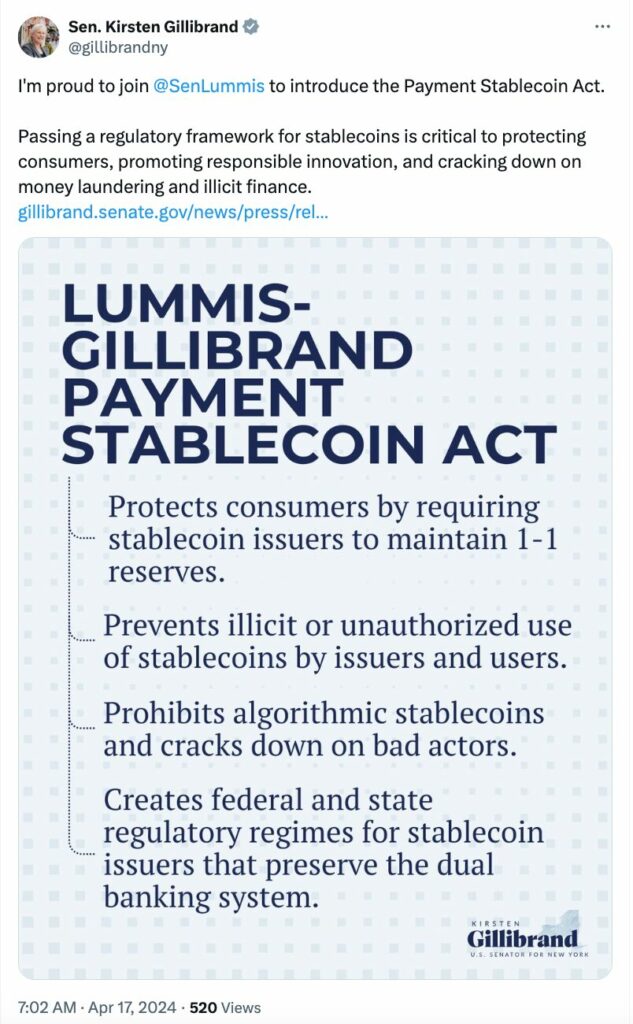United States Senators Kirsten Gillibrand and Cynthia Lummis have introduced the Lummis-Gillibrand Payment Stablecoin Act, unveiling a significant step towards regulatory guidelines for payment stablecoins.
In an April 17 announcement, Senators Gillibrand and Lummis introduced the Lummis-Gillibrand Payment Stablecoin Act, which aims to establish a robust regulatory framework for payment stablecoins. The bill addresses concerns raised by incidents like the TerraUSD (UST) de-pegging in 2022, prohibiting “unbacked, algorithmic stablecoins” and requiring one-to-one reserves for issuers. Senator Gillibrand emphasized the importance of this framework, stating it is crucial for maintaining the U.S. dollar’s dominance, promoting innovation, protecting consumers, and combating illicit finance.
Key Provisions of the Lummis-Gillibrand Payment Stablecoin Actv

According to the bill, state non-depository trust companies can issue payment stablecoins up to $10 billion, and authorized institutions can issue stablecoins without a specified cap under a limited-purpose state charter. The legislation also emphasizes the preservation of existing state and federal charters and introduces custody rules for non-depository trust companies.
The bill stresses proper custody practices for stablecoin issuers, especially in light of recent developments involving FTX.
Read more: Ripple Enters the Stablecoin Market: A New Challenger Emerges
Moving Forward: Implications and Legislative Outlook

Senators Lummis and Gillibrand’s initiative reflects growing concerns from lawmakers and industry leaders about regulating stablecoin issuers. While similar bills like the Clarity for Payment Stablecoins Act have advanced in the House of Representatives, progress has stalled. Senator Sherrod Brown, chair of the Senate Banking Committee, has expressed interest in a stablecoin bill, underscoring a broader push in Congress towards responsible innovation and financial oversight in the digital asset space.
Read more: Tether CEO: The Importance of Stablecoin Competition in Regulatory Engagement
Conclusion
In conclusion, the Lummis-Gillibrand Payment Stablecoin Act marks a significant step in establishing regulatory clarity for stablecoin operations in the United States, aiming to enhance transparency, protect consumers, and address risks associated with stablecoin issuance and use.





